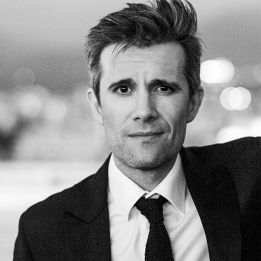

General counsel | Camanchaca



Rafael Le-Bert
General counsel | Camanchaca
What are the most significant cases, projects or transactions that you and/or your legal team have recently been involved in?
As Camanchaca S.A.’s General Counsel, one of my main challenges is to continuously monitor regulatory changes in Chile’s fishing and aquaculture sectors. The legal framework governing this industry evolves rapidly and, at times, responds more to short-term political pressures than to technical or scientific criteria. My role is to anticipate these changes, assess their impact on operations, and, most importantly, contribute to the regulatory debate with solid arguments that promote rules grounded in scientific and technical evidence as well as in the sector’s productive reality.
This position requires coordinating legal, technical, and economic analyses to build strong positions in response to bills or new regulations, always aiming to safeguard the industry’s sustainability and legal certainty.
In cases where proposed or enacted regulations cause significant harm or undermine fundamental principles of regulatory stability, I must lead the assessment of potential legal actions against the State to defend the company’s rights. The challenge lies in balancing strict legal compliance, active monitoring of regulatory developments, and the protection of the company’s interests in an ever-changing regulatory environment.
How do you approach managing legal aspects during periods of instability or crisis to ensure the organisation’s resilience?
As Camanchaca’s General Counsel, one of my main priorities during periods of instability or crisis is to ensure that legal management contributes to the organisation’s resilience. In these scenarios, regulatory, contractual, and operational frameworks can come under pressure, requiring quick and strategic responses. For me, the key lies in remaining free of rigidity, open to change, and willing to adapt to the new realities that arise in uncertain environments.
I firmly believe that flexibility is the greatest strength when facing change. Managing legal matters in times of crisis requires not only technical expertise but also the ability to adjust strategies, reinterpret risks, and seek creative solutions that allow the company to respond with agility. This openness makes it possible to anticipate scenarios, protect the company’s interests, and at the same time maintain operational continuity within the legal framework.
My goal is for the legal department to be a pillar that supports and strengthens Camanchaca’s ability to react, turning uncertainty into an opportunity to reinforce internal processes and consolidate an organisational culture that is adaptable and resilient in the face of the challenges imposed by a constantly changing environment.
Given the current geopolitical shifts and growing uncertainties around international free trade, has your company’s risk profile evolved, and are you taking measures to address these challenges?
Considering the tariff changes imposed by the United States, it is essential to closely monitor the discussions and considerations taking place within U.S. government agencies, particularly those closest to the President. These decisions can have a direct impact on the Chilean salmon industry, affecting both competitiveness and trade flows. Furthermore, such measures create a ripple effect across international markets, putting pressure on prices, market access, and global commercial strategies. Anticipating these developments allows for risk assessment, preparation of legal and commercial responses, and protection of the industry’s position in a highly dynamic international environment.
What factors influence your team’s decision to use external legal services versus handling matters in-house, and what criteria are used to evaluate their performance?
The choice between in-house and external counsel reflects a difference in roles: the legal department assumes a strategic function, defining guidelines and advising the board and executive management, while external counsel provides a specialist role, delivering precise technical analysis on specific matters. The engagement of external advisors is segmented according to their area of expertise, ensuring that each critical aspect benefits from the appropriate expert knowledge. This complementarity allows the legal department to align corporate strategy with specialised technical support, enabling informed and consistent decision-making in a complex regulatory environment.
General counsel | Camanchaca
General counsel | Camanchaca
General counsel | Camanchaca
General counsel - Compañía Pesquera Camanchaca and Salmones Camanchaca | Compañía Pesquera Camanchaca
Rafael Le-Bert joined Compañía Pesquera Camanchaca as general counsel in 2013, prior to which he enjoyed an extremely successful decade as a private practice lawyer at a number of extremely...
General counsel | Camanchaca
Before Rafael Le-Bert joined the Chilean fishery and seafood company Camanchaca, it did not have a legal department, with all of its legal work done by external firms. Le-Bert immediately...